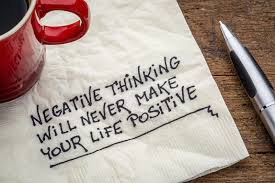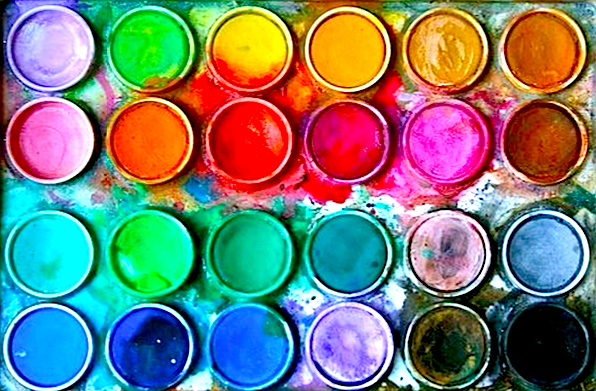
Hello, Dear Readers Happy Valentines!
At the time of writing this article. Our centenarian hero: Sir Captain Tom Moore, has passed. He earned the love and respect, not just of the British people, but the people of all ages the world over.
I would like to add a personal message and hope that it represents us all who have contributed, and to you who read the magazine.
He will be sadly missed. His quiet way of getting on with it is an inspiration to us all. I so admire the British men and women, of the last two world wars. They showed great courage and faith. They did not flinch from danger.
Remember our elderly loved ones and neighbours. They are great historians. Children and Elders get on so well together. Roll on the time when we can socialise with them again.
In this month’s article, I would like to share with you my personal journey; and insight into how the mind works, how stress builds up, and how mindfulness helped in my recovery from stress related burn out.

Experience has taught me that our minds can create a heaven or a hell. One might think that as therapists we can spot when things are not going right for us. However, when it comes to us, we can be just as impervious to the symptoms, of stress, anxiety, and depression.
In todays climate I can only guess at the vast number of people who are in the throes of stress.
Work life, family life, relationships. Home schooling, keeping the children happy, and not being able to socialise with our loved ones. Can become the foundation for stress. And as we know stress unchecked can lead to anxiety and or depression. So, we must guard our mental health. I will talk a little about some of the therapies that have helped me in this article. And follow it up in my next one.
Currently, and because of the COVID restrictions, many carers may find themselves becoming stressed and anxious. They may have had to cope alone with a loved one.
Fortunately, most people, do have family and friends who can support them, but for now the task may become quite daunting, especially if they are shielding themselves. Our social networks and media are such help in these situations, as they help to reduce the isolation.
But for some carers, even though they may have adult children, the prospect for caring for a spouse alone can leave one feeling over-whelmed. One lady approached me when I was food shopping, and confided that her husband was in hospital, not COVID related. And that he was going to be discharged home in a day or two. She went on to say that he had always looked after the bills. Maintained their car, even to the point of re-fuelling it. “I’ve never had to worry regarding this” she said.
The anguish on her face, at the prospect of having to manage things for the first time on her own was visible. Her grown up son and daughter lived in another part of the country and could not visit them. Not getting the help and support that you need may be the last straw for some folk.
Respite, for carers may remain a problem, and so people are having to cope as best they can.
Our over-stretched NHS and staff are having to work long hours, and beds are precious so when a patient is sufficiently recovered. They are discharged home to their loved ones. As in this lady’s case.
We chatted for a while mindful of keeping our social distance. I offered my sympathy, and a listening ear, I felt like giving her a huge hug. Instead, I empathised with her position. And we waved each other off.
On the journey home she was on my mind. I knew too well what that meant not feeling up to the job. The memory is still fresh in my mind. I had previously, taken on the care of a relative who was struggling with alcohol related problems. This was complicated by other health issues including lapses of memory.
The stress and strain of being on constant call. Keeping a busy job down, and not much time for socialising meant at times I was feeling very alone, tired, irritable and at my wits end.
Other family members had done their best given their situation and now it was my turn. I was left to get on with it.
Work pressures built up. My sleep was being disturbed. Any slight sound would have me awake, often in the very early hours. I then found it difficult to get back to sleep; eventually nodding off for 45 minutes before the alarm had me awake again, to face yet another day unrefreshed.
After 12 months of juggling work and caring. Exhausted I gave up. Other members of the family stepped in. Thankfully my relative, received the right help and care and is now happily settled. It had taken three years to get the right diagnosis and care for them.

Before this all happened, I would describe myself, as a caring, confident, and an easy-going personality. I had not noticed the obvious changes that had slowly taken place within me. In hindsight I can see now how the stress had kept building up. I also acknowledge how my negative thinking, created suffering and increased my anxiety. There were too many what ifs to cope with.
Stress is a condition that creeps up on one. I put myself under pressure. I just kept on keeping on, when in fact I should have slowed down and listened to my body and sought help sooner.
Instead, I convinced myself that If I just pushed through this day tomorrow would be better. After all I was the therapist, I should be able to cope. The thoughts in my head kept me awake at night. My sleep suffered, and I did not feel refreshed on waking.
Months, of this meant my mental health suffered. And in the end, I was off work for seven months before I recuperated, and felt well enough to return to my work, a wiser woman!
I had fallen into the trap of listening to my minds chatter, that negative stream of thoughts that plague us. And blaming myself, and worst, blaming others.
I saw a person-centred counsellor as part of my recovery. Counselling provided me with a safe place to explore my feelings and work through my problems. Instead of self-pity. I cultivated an attitude of compassion for myself, and soon after, I began to feel so much more improved.
The counsellor had done a course in stress related mindfulness; one that I had undertook a few years previously. We set about using the tools of mindful being, thinking, and living.
Mindfulness is a practice where we pay attention to what is happening in the here and now. We may call this being present. Participating in our own life and being in command of our mind and thinking. When we pay attention, we notice what is happening within us and around us, we awaken; really awaken to our five senses; even our sixth sense, what we call clairsentience, a kind of knowing or intuition. We then create opportunities to be open and receptive to our higher selves, that part of us that brings the best out in others and ourselves.
Just knowing and believing that this would pass was enough. Positivity is a great strength. By simply accepting the feelings that came up, without judging them or me, or others, things started to shift.
This untangling of thoughts helped me to focus on what is, not what might me. As a result, I could focus first on quieting the mind chatter, and concentrated on my breathing techniques, a skill I had acquired, years before, when I spent a retreat at Sami Ling the Buddhist monastery in Lockerby Scotland.
A practice, I had not done for some months. Although prayer and meditation are an important part of me, I felt too exhausted at times to meditate. I always offered up a prayer for help and was thankful for the help I was receiving.
I fully believe that a holistic approach was the best way forward for me, to bring me back to wellness in body, mind, and spirit. In this environment the soul can heal.
I also received regular back and shoulder massages. To undo the “knotty muscles” that tension had caused over the past months. And a good friend gave me Reiki treatments.

As my energies returned my creativity returned too.
I discovered the therapeutic aspect of painting, not on canvass. I re-painted a bookshelf, a kitchen cabinet, my kitchen, and the bathroom.
I planted roses, lavender, and geraniums. A few of my favourite smelling plants. Scents are so provocative and helped with my sense of well-being. I loved being massaged with these oils.
It has been five years since that episode. I am pleased to say that my own therapeutic skills were put to good use, and certainly helped me to recover more rapidly.
I hope that by sharing my journey with you, you can benefit in some way. Please do not wait till its too late. Seek help now! Do not suffer in silence. The more we worry will have an adverse effect on our health and well-being.
Please remember you are not alone. We are here to help.
In my next article I would like to continue with the mind and how it works, and share with you some interesting and fascinating concepts, that have helped illuminate my life.
Until then, take good care of one and other.
And remember a problem shared is a problem halved.
Maureen x